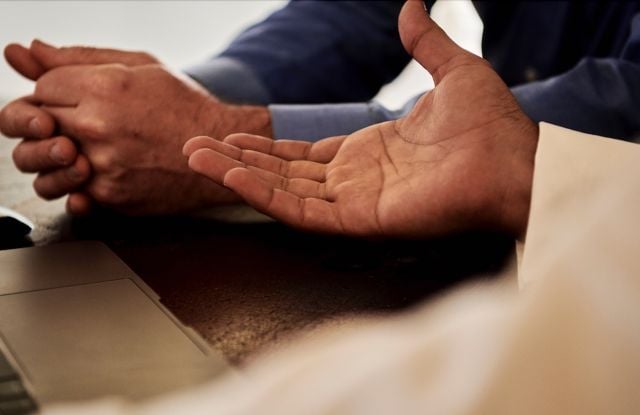Why study about Jesus? (Orthodoxy vs Orthopraxy)

Why study Jesus?
Because we don’t just believe in him, but we as his “followers” have chosen to follow him. So we need to understand how he asks us as his followers to live.
Hebrews 1-3 clarifies that Jesus represents a departure from old religion. James 2:19 clarifies that it’s not about belief alone. “You believe that there is one God. Good! Even the demons believe that—and shudder.”
But how many people define their faith by their belief, not their actions? Recently, a blog reader questioned the “orthodoxy” of a quote I mentioned in one of my blogs. To his way of thinking, I was advocating faith without anchoring it in doctrine.
Of course our belief must be grounded, but belief is not faith. Belief exists in the mind whereas faith, like love, connects to action. Faith is spelled R-I-S-K. It is a muscle that we exercise when we interact with others. For example, when we trust people, we take a risk that they will abuse that trust. When we trust God, we risk that he won’t respond.
We need to continually wrestle with this issue of right belief vs. right living. We say we “believe” in grace, but we don’t exhibit it in our behavior. Hypocritical behavior by Christians is one of the biggest reasons that millions are leaving the Church. There’s a hole in the Titanic, and the band just keeps right on playing.
The irony is that hypocritical living has its roots in a desire by religious professionals to believe the right thing. But it has to be balanced with right living. Lose the balance and you may find yourself opposing Jesus. We need right belief (known as orthodoxy) or we stand in danger of heresy. We need right living (orthopraxy) or we stand in danger of hypocrisy.
The religious scholars have always been the guardians of right belief, but Christianity was founded in part as a rebuke to such guardians, people whose head-knowledge had outrun their heart-knowledge.
Yes, Jesus was a student of Scripture, but he was righteously appalled at the gap between the orthodoxy and orthopraxy of the religious scholars. In the scathing 23rd chapter of Matthew, he gives them their due, “You must do everything they tell you. But do not do what they do, for they do not practice what they preach.”
As James would argue, if you say, “I have faith,” I say, “show me your works.”
In America, we in the religious establishment engage in far too many pointless debates instead of asking the Holy Spirit what he’s up to and how we can join him. If Jesus hadn’t made skewering the religious professionals such a huge issue, it would be easier to be a seminary professor or someone else who majors on the orthodoxy side of the equation.
All this squabbling about orthodoxy has got me wondering: If we don’t also focus on right living then perhaps we’re not orthodox at all.



So good Seth. It’s time to be abnormally normal and heal the sick, feed the hungry, get rid of demons, and raise the dead. It’s time, it’s so time. The river of Jesus is flowing and Holy Spirit is blowing.
You and your friend have studied more theology than me, so I’ll let the two of you frame your positions. But I, too, have simple “R” words in describing my life in Christ:
– “Rest” – in Jesus and His finished work. Exhale. Savor. Revel. Give thanks.
And I ‘rest’ so I might do the second “R” word.
– “Race” – it’s set before me. Each day. Each breath. Each challenge. By His grace to His glory until I cross the finish line in His embrace.
Good one. Love the comments. The world is looking for genuine
Thank you Seth. A great failure of the church is our reticence to speak about sin. That’s why Jesus made an infinite stoop and condescension to a broken and bruised world. Love you.
Hi Seth, I always love your thoughts. I think if the church was to lean in a particular direction , being more like Christ in our actions would have greater consequences than all being experts in theology. Scripture says May they know you are Christians by your LOVE , John 13:35 not by your knowledge . Knowledge is important for the believer , Love is evident to the unbeliever.
I love this, Seth. Thank you for being a voice of faith and dependency. Your life is a testament to these words.
Thanks, Kareena.
Am getting my PhD in Theology at the moment and just finished a paper on Faith (true faith vs barren faith), so this definitely caught my eye. As a missionary amongst the poor, orthopraxy is in my DNA, and yet I admit it does infinitely best when coupled with orthodoxy (doctrinal truth). This is definitely not an “either/or”choice but a “both” in my opinion (and that’s it is). True though that the tendency for us humans journeying with God tends to lean towards one of the two ditches on the side of that road.